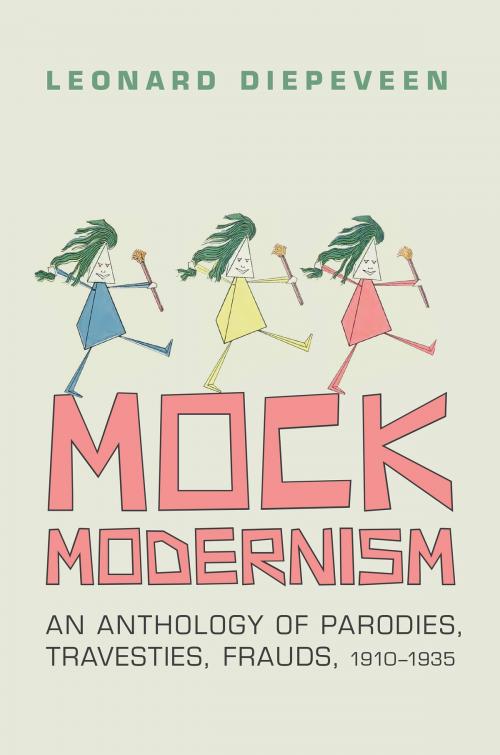Mock Modernism
An Anthology of Parodies, Travesties, Frauds, 1910-1935
Fiction & Literature, Literary Theory & Criticism, British, Nonfiction, Art & Architecture, Art History, Social & Cultural Studies, Social Science| Author: | Leonard Diepeveen | ISBN: | 9781442661806 |
| Publisher: | University of Toronto Press, Scholarly Publishing Division | Publication: | February 24, 2014 |
| Imprint: | Language: | English |
| Author: | Leonard Diepeveen |
| ISBN: | 9781442661806 |
| Publisher: | University of Toronto Press, Scholarly Publishing Division |
| Publication: | February 24, 2014 |
| Imprint: | |
| Language: | English |
How was the modernist movement understood by the general public when it was first emerging? This question can be addressed by looking at how modernist literature and art were interpreted by journalists in daily newspapers, mainstream magazines like Punch and Vanity Fair, and literary magazines. In the earliest decades of the movement – before modernist artists were considered important, and before modernism’s meaning was clearly understood – many of these interpretations took the form of parodies.
Mock Modernism is an anthology of these amusing pieces, the overwhelming majority of which have not been in print since the first decades of the twentieth century. They include Max Beerbohm’s send-up of Henry James; J.C. Squire’s account of how a poet, writing deliberately incomprehensible poetry as a hoax, became the poet laureate of the British Bolshevist Revolution; and the Chicago Record-Herald’s account of some art students’ “trial” of Henri Matisse for “crimes against anatomy.” An introduction and headnotes by Leonard Diepeveen highlight the usefulness of these pieces for comprehending media and public perceptions of a form of art that would later develop an almost unassailable power.
How was the modernist movement understood by the general public when it was first emerging? This question can be addressed by looking at how modernist literature and art were interpreted by journalists in daily newspapers, mainstream magazines like Punch and Vanity Fair, and literary magazines. In the earliest decades of the movement – before modernist artists were considered important, and before modernism’s meaning was clearly understood – many of these interpretations took the form of parodies.
Mock Modernism is an anthology of these amusing pieces, the overwhelming majority of which have not been in print since the first decades of the twentieth century. They include Max Beerbohm’s send-up of Henry James; J.C. Squire’s account of how a poet, writing deliberately incomprehensible poetry as a hoax, became the poet laureate of the British Bolshevist Revolution; and the Chicago Record-Herald’s account of some art students’ “trial” of Henri Matisse for “crimes against anatomy.” An introduction and headnotes by Leonard Diepeveen highlight the usefulness of these pieces for comprehending media and public perceptions of a form of art that would later develop an almost unassailable power.















